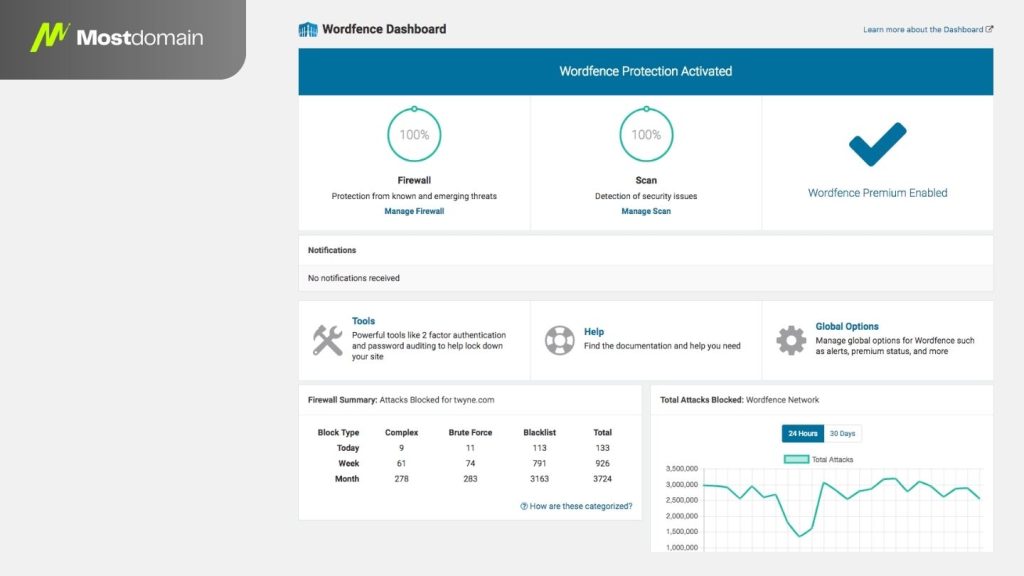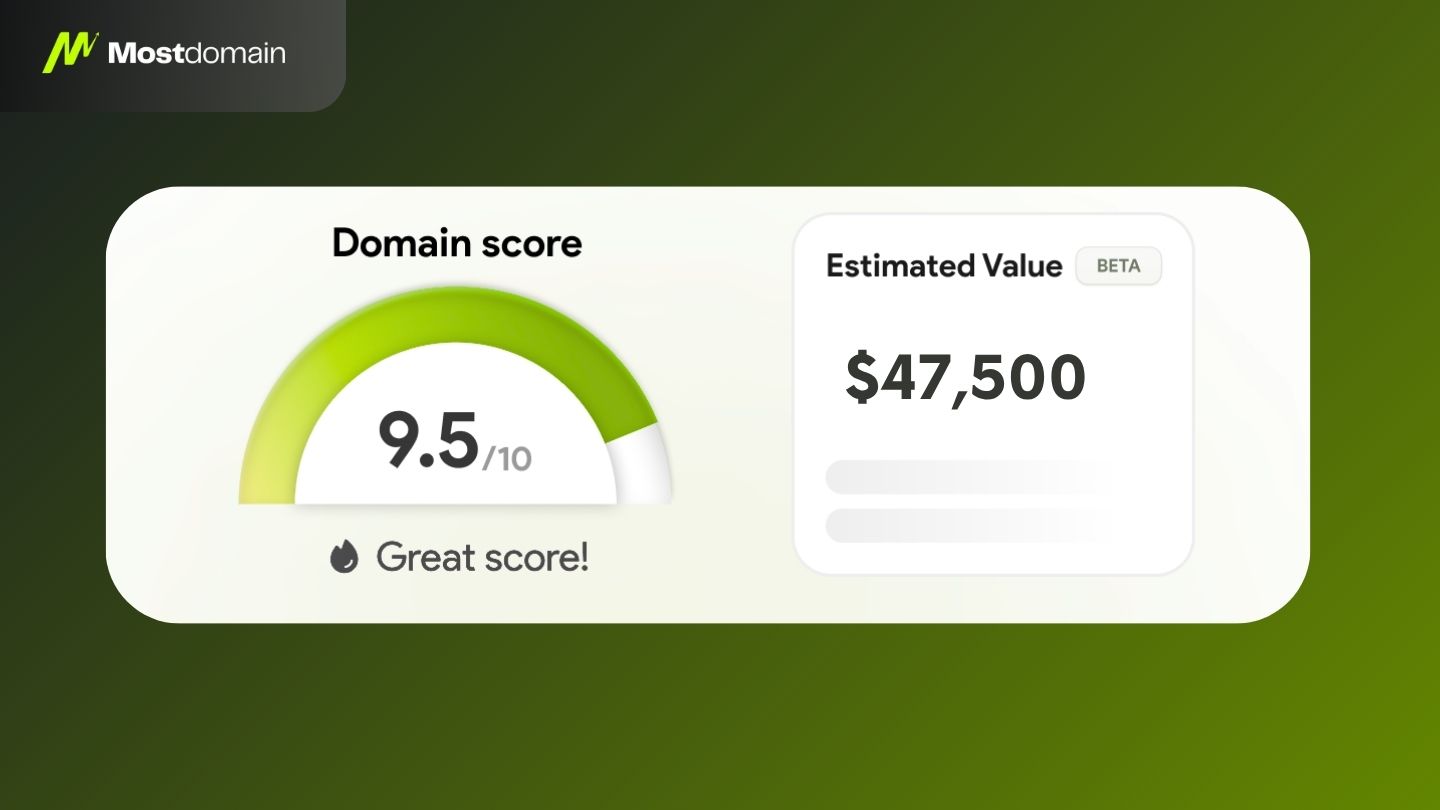With 7,966 vulnerabilities registered in WordPress last year—a staggering 34% increase from 2023—website security has never been more critical. Every minute, 90,000 attacks target WordPress sites, while Google blacklists 70,000 websites weekly due to security issues.
The landscape has evolved dramatically. Hackers now use automation, machine learning, and smarter techniques to find and exploit weak WordPress sites in bulk. What worked for security in 2024 simply isn’t enough for the AI-driven threats of 2025.
After rigorous testing of 25+ security plugins against real malware samples and simulated attacks, we’ve identified the 11 best WordPress security plugins that can actually protect your site in 2025. Our testing methodology focused on three critical factors: malware detection accuracy, cleanup effectiveness, and firewall performance—because these determine whether your site survives or becomes another statistic.
Expert Insight: “The types of attacks haven’t changed, but how hackers carry them out has. They’re using automation, machine learning, and smarter techniques to find and exploit weak WordPress sites in bulk.”
Security Research Team
Why Are WordPress Security Plugins More Critical Than Ever in 2025?
The threat landscape has fundamentally shifted. Traditional security measures that worked even two years ago are now insufficient against today’s sophisticated attacks. AI-driven attacks targeting WordPress vulnerabilities have shown a noticeable increase, making unprotected sites easy targets.
Here’s what makes 2025 different:
✗ AI-Powered Mass Scanning
Hackers now use machine learning to scan thousands of WordPress sites simultaneously. They can identify outdated plugins, vulnerable themes, and exposed files in seconds—not hours.
✗ Zero-Day Exploit Acceleration
Threat actors have routinely exploited four different security vulnerabilities in WordPress plugins since the start of the year, with CVSS scores reaching 10.0 (maximum severity).
✗ Mu-Plugin Hijacking
A concerning new trend involves hackers hiding malware in WordPress mu-plugins, exploiting their “must-use” status to avoid detection during routine security checks.
| 2023 vs 2025 Threat Comparison |
| 2023: Manual attacks, basic bots, predictable patterns |
| 2025: AI automation, behavioral analysis, adaptive threats |
| Detection Time: Hours to days → Seconds to minutes |
| Attack Volume: Thousands → Millions per day |
The statistics are sobering: 30,000 websites get hacked daily, and 64% of companies have experienced cyber attacks. Without proper protection, your site isn’t just vulnerable—it’s a target.
Learn About: Website Security Checklist For SEO Boost
How Did We Test These Security Plugins?
Our testing methodology went beyond marketing claims. We created three identical WordPress test sites and subjected them to real-world security challenges:
Primary Testing Criteria:
• Malware Detection: Ability to identify hidden malware, backdoors, and malicious code
• Cleanup Effectiveness: Success rate in completely removing infections
• Firewall Performance: Real-time blocking of malicious traffic and bot attacks
• Resource Impact: Effect on site loading speed and server performance
We used actual malware samples, simulated brute force attacks, and monitored each plugin’s performance over 30 days. Only plugins that excelled in all four areas made our final list.
Note: All testing was conducted on isolated environments with proper security protocols. No live websites were compromised during our research.
Which Security Plugin Offers the Best Malware Protection?

1. MalCare Security ⭐⭐⭐⭐⭐
Rating: 4.9/5 | Active Installs: 300k+ | Our Top Pick
MalCare stood out in our testing with its revolutionary approach to malware scanning. Unlike traditional plugins that strain your server resources, MalCare doesn’t use your site resources to scan for malware—it scans on its own servers.
Key Features:
• One-click malware removal with 99.9% success rate
• Offsite scanning that doesn’t slow down your website
• Real-time firewall with behavioral analysis
• Website hardening with 30+ security measures
✓ Pros: Lightning-fast scans, excellent cleanup success rate, minimal resource usage
✗ Cons: Free version only detects malware, premium required for removal
Best For: Sites with limited server resources or high-traffic websites
Pricing: Free scanner, Premium starts at $99/year
2. Wordfence Security ⭐⭐⭐⭐
Rating: 4.5/5 | Active Installs: 4+ million | Most Popular
Wordfence is one of the most popular and comprehensive security plugins available for WordPress, highly trusted by millions of website owners. Our testing confirmed its robust malware scanning and firewall capabilities.
Key Features:
• Web Application Firewall (WAF) with real-time threat intelligence
• Malware scanner comparing files against WordPress.org repository
• Live traffic monitoring for real-time threat detection
• Two-factor authentication and login security
✓ Pros: Comprehensive feature set, excellent documentation, strong community
✗ Cons: Can consume significant server resources, frequent email alerts
Best For: Sites requiring comprehensive security with detailed monitoring
Pricing: Free version available, Premium starts at $119/year
3. Sucuri Security ⭐⭐⭐⭐⭐
Rating: 4.8/5 | Active Installs: 800k+ | Cloud-Based Leader
Sucuri is a globally recognized leader in website security, offering a complete suite of tools to protect your WordPress site. Their cloud-based approach provides enterprise-level protection.
Key Features:
• Cloud-based firewall filtering threats before they reach your server
• Continuous malware monitoring with instant notifications
• Website performance optimization through global CDN
• Blacklist monitoring across major search engines
✓ Pros: Excellent performance optimization, professional support, comprehensive protection
✗ Cons: Advanced features require premium plans, steeper learning curve
Best For: Business websites requiring professional-grade security and performance
Pricing: Free scanner, Premium starts at $229/year
Learn About: Emergency WordPress Malware Cleanup
What About All-in-One Security Solutions?
4. Jetpack Security ⭐⭐⭐⭐
Rating: 4.6/5 | Active Installs: 5+ million | WordPress.com Powered
Backed by a team of WordPress experts, Jetpack is the top choice for WordPress website security. It integrates seamlessly since it’s developed by the WordPress.com team.
Key Features:
• Real-time backups with one-click restore
• Malware scanning with automatic threat resolution
• Brute force protection with advanced algorithms
• Downtime monitoring with instant notifications
✓ Pros: Easy setup, WordPress.com integration, comprehensive feature set
✗ Cons: Can feel bloated, some features overlap with other plugins
Best For: Users wanting an all-in-one solution from WordPress creators
Pricing: Security plans start at $99/year
5. Solid Security (iThemes) ⭐⭐⭐⭐
Rating: 4.4/5 | Active Installs: 1+ million | User-Friendly
Solid Security helps secure your site in over 30 ways, including password protection, user activity monitoring, and more. Perfect for beginners who want comprehensive protection without complexity.
Key Features:
• 30+ security enhancements with one-click activation
• Brute force protection with intelligent algorithms
• File change detection monitoring core files
• Database backups with scheduled automation
✓ Pros: Beginner-friendly interface, comprehensive feature set, good documentation
✗ Cons: Some advanced features require premium, can impact performance
Best For: Beginners wanting comprehensive security without technical complexity
Pricing: Free version available, Premium starts at $99/year
Are There Reliable Free Security Options?
6. All In One WP Security & Firewall ⭐⭐⭐⭐
Rating: 4.3/5 | Active Installs: 1+ million | Best Free Option
This plugin proves you don’t need to pay for solid security. All-In-One Security offers the best balance between execution time, resources loaded and user interface among free options.
Key Features:
• Comprehensive firewall with customizable rules
• Login security with CAPTCHA and attempt limiting
• File system security monitoring and hardening
• Database security with backup and optimization
✓ Pros: Completely free, comprehensive features, minimal performance impact
✗ Cons: Interface could be more modern, limited premium support
Best For: Budget-conscious users wanting comprehensive free protection
Pricing: Completely free
7. Defender Security ⭐⭐⭐⭐
Rating: 4.7/5 | Active Installs: 400k+ | WPMU DEV Product
After 15 years of building WordPress sites and trying all security plugins, Defender truly stands out as the best option according to experienced developers.
Key Features:
• Malware scanning with heuristic detection
• IP blocking with geolocation features
• Two-factor authentication with multiple methods • Security recommendations with automated fixes
✓ Pros: Clean interface, doesn’t slow sites, automated security hardening
✗ Cons: Some features require WPMU DEV membership
Best For: Developers and agencies managing multiple WordPress sites
Pricing: Free version available, Premium via WPMU DEV membership
Which Plugins Excel at Specific Security Tasks?
8. Patchstack ⭐⭐⭐⭐
Rating: 4.6/5 | Vulnerability Focus | Developer Favorite
Patchstack is powered by one of the most active communities of ethical hackers, making it exceptionally effective at identifying and protecting against vulnerabilities.
Key Features:
• Virtual patching for unpatched vulnerabilities
• Real-time vulnerability database updated by ethical hackers
• Application-level firewall with WordPress-specific rules
• Multi-site management from single dashboard
✓ Pros: Cutting-edge vulnerability protection, excellent for agencies
✗ Cons: Focused mainly on vulnerabilities, premium-only features
Best For: Agencies and developers managing multiple client sites
Pricing: 14-day free trial, plans start at $14.99/month per site
9. Shield Security ⭐⭐⭐⭐
Rating: 4.8/5 | Bot Protection Specialist | Advanced Users
Shield Security offers expert bot protection for websites in 2025, tackling bots that account for many common security issues.
Key Features:
• Advanced bot protection with behavioral analysis
• Intelligent traffic filtering using machine learning
• Login protection with adaptive security measures
• Comment spam prevention with smart algorithms
✓ Pros: Excellent bot protection, intelligent algorithms, low false positives
✗ Cons: Can be complex for beginners, requires configuration
Best For: Sites suffering from bot attacks or automated threats
Pricing: Free version available, Premium starts at $24/month
10. WP Cerber Security ⭐⭐⭐⭐
Rating: 4.5/5 | Active Installs: 300k+ | Lean and Effective
WP Cerber is known for its lean and effective approach to security, offering features like IP blocking, login protection, and malware scanning.
Key Features:
• Intelligent IP blocking with reputation analysis
• Anti-spam protection for comments and contact forms
• Traffic inspection with detailed logging
• Malware scanner with cloud-based detection
✓ Pros: Lightweight, effective anti-spam, detailed reporting
✗ Cons: Limited free features, interface could be modernized
Best For: Sites dealing with spam and unwanted traffic
Pricing: Free version available, Premium starts at $99/year
11. SecuPress ⭐⭐⭐
Rating: 4.1/5 | Active Installs: 100k+ | French Excellence
SecuPress is a comprehensive WordPress security plugin that offers advanced features to protect your site, developed by the team behind WP Rocket.
Key Features:
• Security scanner with detailed reporting
• One-click security fixes for common issues
• Anti-brute force protection with smart algorithms
• Malware detection with behavioral analysis
✓ Pros: User-friendly interface, quick setup, good documentation
✗ Cons: Limited advanced features, smaller community
Best For: Users wanting simple, effective security from trusted developers
Pricing: Free version available, Premium starts at $59/year
Security Plugin Comparison: Features at a Glance
| Plugin | Malware Scan | Firewall | Performance Impact | Best For | Price Range |
| MalCare | ⭐⭐⭐⭐⭐ | ⭐⭐⭐⭐⭐ | Minimal | High-traffic sites | $99-299/year |
| Wordfence | ⭐⭐⭐⭐⭐ | ⭐⭐⭐⭐⭐ | Moderate | Comprehensive protection | Free-$119/year |
| Sucuri | ⭐⭐⭐⭐⭐ | ⭐⭐⭐⭐⭐ | Minimal | Business sites | $229-459/year |
| Jetpack | ⭐⭐⭐⭐ | ⭐⭐⭐⭐ | Low | All-in-one solution | $99-299/year |
| All-in-One | ⭐⭐⭐⭐ | ⭐⭐⭐⭐ | Low | Budget users | Free |
| Defender | ⭐⭐⭐⭐ | ⭐⭐⭐⭐ | Low | Developers | Free-$49/month |
Pro Tip: The best security strategy combines a primary security plugin with good hosting security and regular updates. No single plugin can protect against every threat.
Discover: WordPress Security Crisis Solutions
What Questions Do Users Ask About WordPress Security Plugins?
Q: Do I really need a security plugin if I have good hosting?
A: Yes, absolutely. While quality hosting provides server-level security, WordPress security plugins protect at the application level. They defend against plugin vulnerabilities, brute force attacks, and malware that hosting security might miss.
Q: Can I use multiple security plugins together?
A: Generally not recommended. Multiple security plugins can conflict with each other, causing performance issues or even security gaps. Choose one comprehensive solution and supplement with specialized tools only if needed.
Q: How often should I scan my site for malware?
A: Daily automated scans are ideal for business sites. Personal blogs can usually manage with weekly scans. Most premium plugins offer automated scanning, so you don’t need to remember manually.
Q: Will security plugins slow down my website?
A: Modern security plugins like MalCare and Sucuri use cloud-based scanning that doesn’t impact your site speed. Traditional plugins like Wordfence may cause slight slowdowns but offer more granular control.
Q: What’s the difference between free and premium security plugins?
A: Free versions typically offer basic scanning and protection. Premium versions include malware removal, advanced firewalls, priority support, and features like two-factor authentication and detailed reporting.
Q: How do I know if my site has been hacked?
A: Common signs include unusual admin users, unfamiliar files, redirects to suspicious sites, or Google blacklist warnings. Security plugins can detect these issues automatically and alert you immediately.
Q: Should I remove a security plugin if I switch to a different one?
A: Yes, always deactivate and delete the old plugin before installing a new one. Export any important settings first, and ensure your new plugin is fully configured before removing the old one.
Explore: Cloud Security Architecture Best Practices
How Do You Install and Configure These Plugins Properly?
Quick Installation Guide
Step 1: Choose Your Plugin
Based on your needs and budget, select from our tested recommendations above.
Step 2: Install and Activate
Log in to your WordPress dashboard, move to the “Plugins” section, click “Add New,” search for your chosen plugin, and click “Install Now”.
Step 3: Run Initial Setup
Most modern security plugins include setup wizards. Follow these carefully—they configure the most important security settings automatically.
Step 4: Configure Advanced Settings
After initial setup, customize settings based on your site’s specific needs. Don’t enable every feature immediately; start conservative and adjust based on your site’s behavior.
Essential Configuration Tips
✓ Enable automatic updates for the security plugin itself
✓ Set up email notifications for critical security events
✓ Create a backup before making major security changes
✓ Test your site functionality after each configuration change
✗ Don’t enable all features at once – this can break functionality
✗ Don’t ignore security notifications – they usually indicate real issues
✗ Don’t forget to update the plugin regularly for new threat protection
Performance Optimization
Security plugins can impact performance, so monitor your site speed after installation. Use tools like GTmetrix or Google PageSpeed Insights to measure any changes.
Note: If you notice significant slowdown, consider switching to a cloud-based solution like Sucuri or MalCare, which process security tasks off your server.
Your WordPress Fortress: Making the Right Choice for 2025
Choosing the right security plugin isn’t just about features—it’s about matching protection to your specific needs and technical comfort level. With AI-driven attacks becoming more sophisticated daily, the cost of inadequate protection far exceeds any plugin investment.
Our Top Recommendations:
• For High-Traffic Sites: MalCare’s offsite scanning won’t impact performance
• For Comprehensive Protection: Wordfence offers the most complete feature set
• For Business Sites: Sucuri provides enterprise-level security with performance benefits
• For Beginners: Jetpack Security offers reliable protection with minimal configuration
• For Budget-Conscious Users: All In One WP Security provides solid free protection
Remember: the best security plugin is the one you’ll actually maintain and update. A basic plugin kept current beats an advanced plugin left to deteriorate.
The threat landscape of 2025 demands proactive security measures. Don’t wait for an attack to reveal your vulnerabilities—implement robust protection today. Your website, your business, and your users depend on it.
References
- WPBeginner – Best WordPress Security Plugins
- Elegant Themes – WordPress Security Threat Update
- Rapyd Cloud – Best WordPress Security Plugins
- The Hacker News – WordPress Mu-Plugins Exploitation
- CMS Minds – WordPress Security Plugins Guide
- WP Marmite – Security Plugins Comparison
- WordPress.org Support – Defender Security Review
- AcceleraWP – Security Plugin Performance Testing
- Jetpack – Security Plugins Comparison
- MalCare – WordPress Security Plugins Testing




















